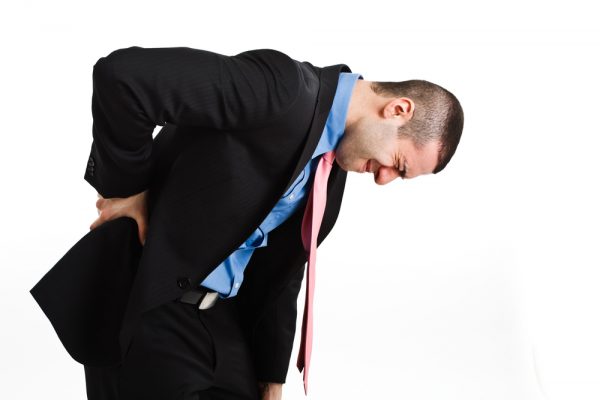No products in the cart.
Pain, Pain Management
Musculoskeletal Pain
There are many types of musculoskeletal pain an individual may go through. Common types of pain are muscle pain, bone pain, tendon pain, ligament pain, joint pain, and nerve pain. These pains have various causes and symptoms. Based on our 2 decades of experience in the clinic. By tolerating these pains the conditions usually worsen. Consequently the severity of your condition gets more difficult to tend to. And would definitely cost you more as it would require more time and attention.
With 2 decades of experience we have encountered many patients with various types of musculoskeletal pain. The duration of their therapy is usually determined by the severity of their condition. With patience and determination, these patients have successfully recovered under our care. This can be easily seen through some of our reviews and testimonials by our clients.
What causes musculoskeletal pain?
Musculoskeletal pain can be experienced by anyone of any age. Most of the time, these pains are caused by an injury towards your bones, joints, tendons, ligaments, and nerves. Try to recall of an incident that might have caused this injury as sometimes pain will only develop over time. This could be from falls, fractures, car accidents, sprains, dislocations, direct impact to the muscles, and even jerking movements.

One of the common causes of musculoskeletal pain could also be due to the overuse of certain type of muscles. Majority of our patients are desk-bound and tend to have lower back pain due to prolonged seating. Unergonomic seats and improper posture will aggravate your back muscles in the long run, causing you to develop severe discomfort on your lower back. In some cases, improper item placement causes neck pain. If your computer or laptop is not placed at the right height for you, your neck will feel strained and this might or might not cause you difficulties sleeping at night.
If you are active in sports, it is also possible to experience musculoskeletal pain. Insufficient stretching, overexertion, and sports injuries are just some possible causes of musculoskeletal pain that causes stress and tension in your muscles, joints, or tendons. Therefore, it is always important to exercise caution when practicing sports as the chances of obtaining an injury is much higher.
What are the symptoms of musculoskeletal pain?
The symptoms of musculoskeletal pain are different for every individual. It is mostly dependent on whether it was caused by an injury or an overworked muscle. Another factor affecting your pain also depends on whether your pain is an acute pain or a chronic pain.
Common symptoms of pain includes:
- Localised or spread out pain during movement
- Muscle aches or stiffness
- The feeling of pulled or overworked muscles
- Sleep deprivation
- Fatigue
- Muscle spasm or twitching
- Burning, tingling, or numbness
These symptoms are not conclusive and if you have any similar pain symptoms, you should seek professional advice.
How do I identify the type of pain I have?
Muscle Pain
Debilitating or blunt pain in your muscles caused by injuries, loss of blood flow to the muscle, or infection. Muscle spasms, muscle twitch, and muscle cramps are common types of muscle pain
Bone Pain
Deep, penetrating, and dull pain commonly due to injury. It is important to note that you should be sure that the bone pain you are facing is not due to a fracture, broken bone, or tumour.
Tendon and Ligament Pain
Sharp, swelling, or bruising pain when movement is made. Tendon and ligament pain might cause muscle spasms and weakness. This might be due to a sprain or a strain, and it is important to know whether it is due to just a sprain, strain, or is it a full out tear.
Joint Pain
Stiff and aching pain that feels like your joints are grinding together, causing a warm throbbing pain. It is usually caused by joint inflammation and a lack of lubrication in your joints.
Nerve Pain
Commonly known as “Tunnel Syndromes”, these pains are caused due to nerve compressions. A burning, tingling, or numbing pain might be felt along the path supplied by the nerve. Common types of nerve disorders are carpal tunnel syndrome, cubital tunnel syndrome, and tarsal tunnel syndrome.
How do I tend to musculoskeletal pain?
There are a few types of therapy methods that you can opt for that will effectively help musculoskeletal pain. The most commonly used therapy prescribed by doctors are the use of medications such as painkillers and medicine that is high in serotonin and norepinephrine to promote muscle relaxation. This affects your brain chemistry and may lead to dependency.
Other methods include:
- Aesthetic injections
- Anti-inflammatory medications
- Muscles stretching and strengthening
- Physiotherapy or occupational therapy
- Osteopathic manipulation
- Therapeutic Massage
- In extreme cases, even surgeries
Read: Problems With Surgeries
Depending on your pain severity and condition, not all methods are suitable for you as you might actually aggravate the pain by trying to solve it by yourself. It is always recommended to seek professional advice for your pain and follow the appropriate therapy methods recommended.

At Pain Clinic @ Wellness Philosophy, we don’t believe in injections and surgery to tend to musculoskeletal pain. After many years of experience in helping patients, we observed that most conditions can be alleviated to full recovery via the use of clinically advanced non-surgical equipment’s such as extracorporeal shockwave therapy. The non-invasive methods and options vary from person to person as there is a need to assess your condition first prior to going for suitable therapies.
After alleviating your pain using our non-invasive therapy methods, your will start to feel pain relief due to the increased blood flow to the affected areas, and a reduce in inflammation. Depending on your condition, it will usually take a few sessions to fully alleviate the pain and thereafter you should focus on stretching and strengthening of your muscles. This is to optimize your good condition to better, and therefore lowering risk of relapse.
Interested to know more about the different types of pain management therapies that we have?
Click Here: Pain Management Therapies
Common Types of Pain Condition We Serve
Neck / Shoulder |
|
Elbow / Wrist |
|
Thoracolumbar / Hip |
|
Knee / Ankle |
|
Degenerative Joint Disease |
|
Are you having any of the listed pain? Let us know in the comments section on how you got it!


